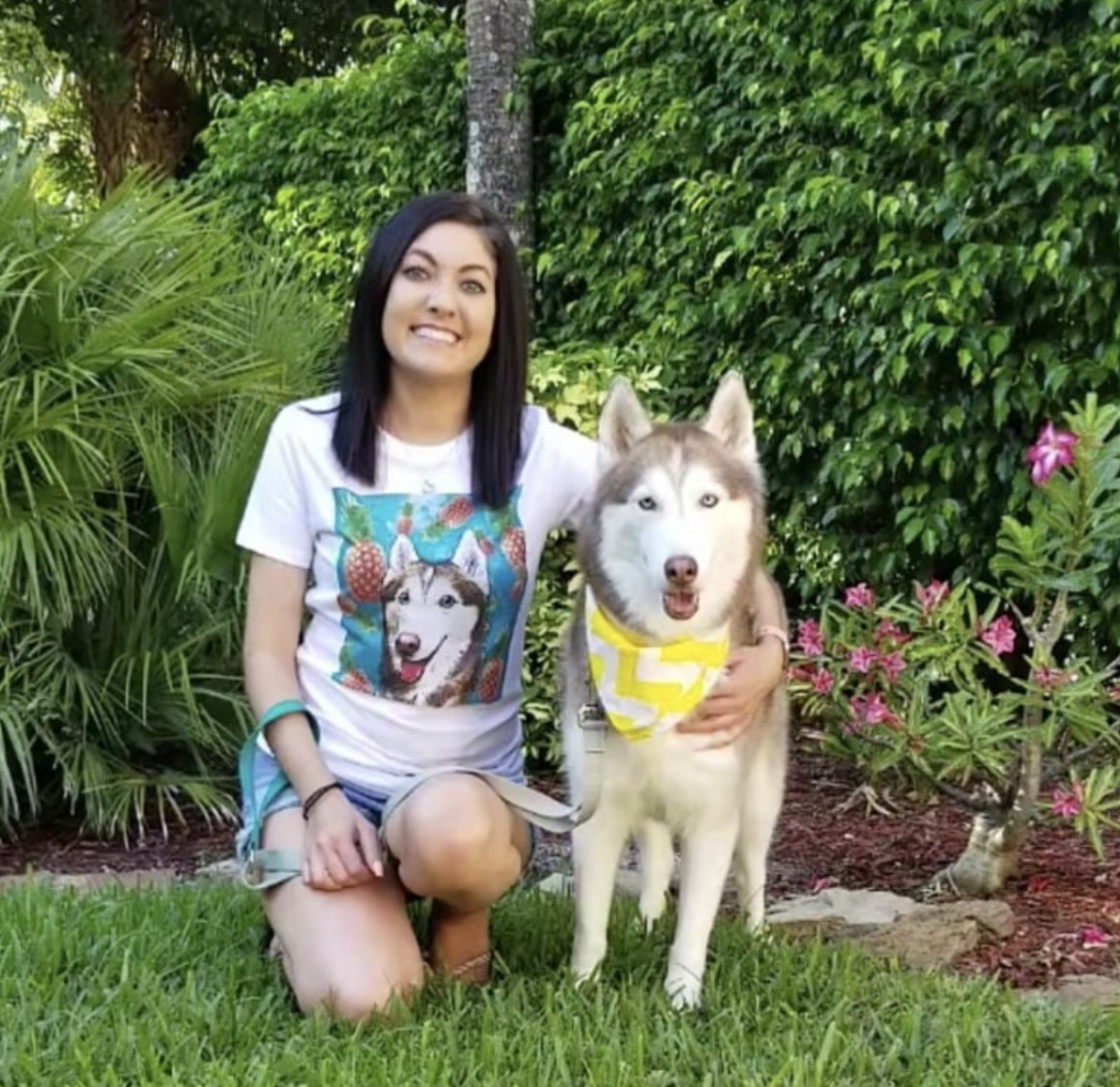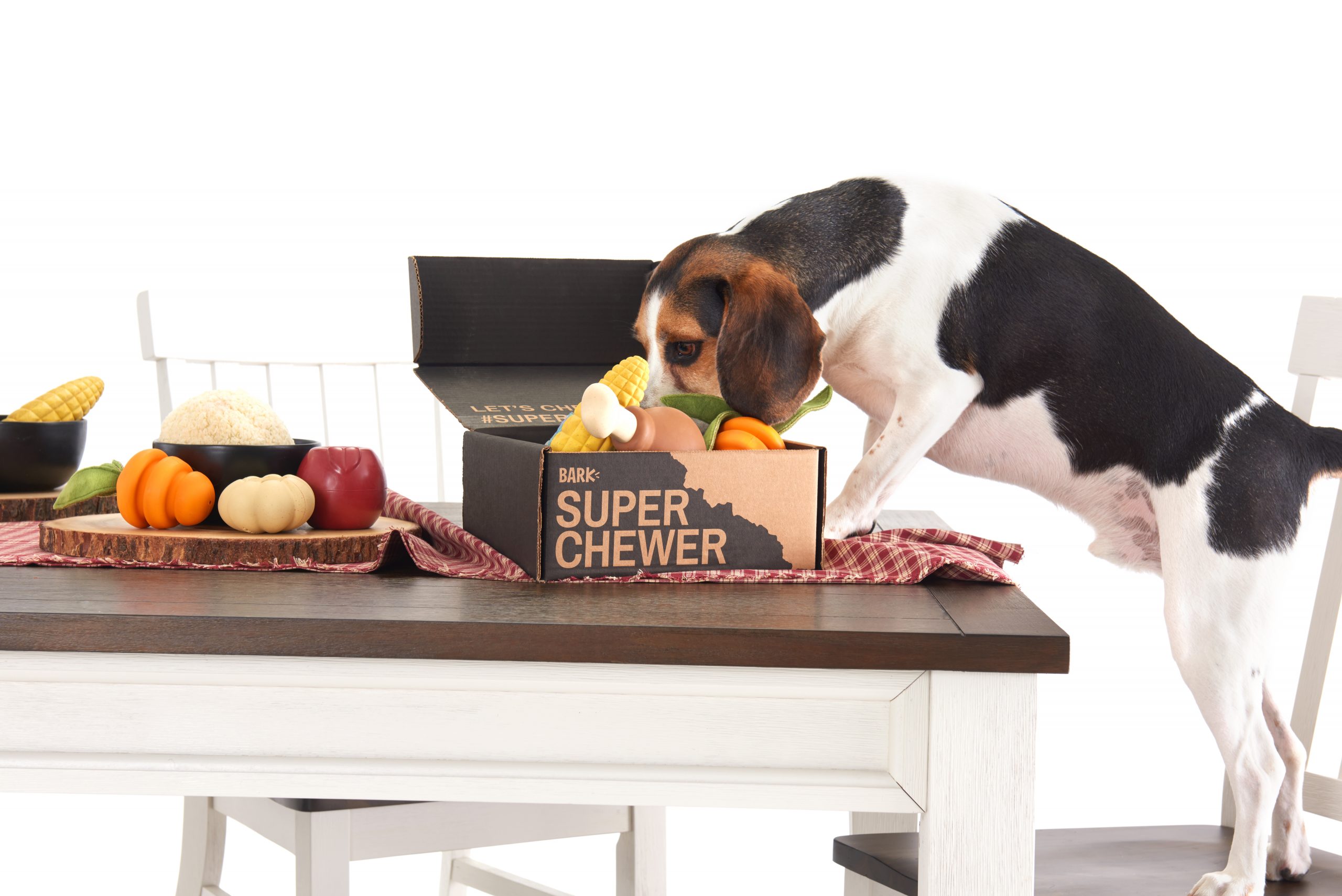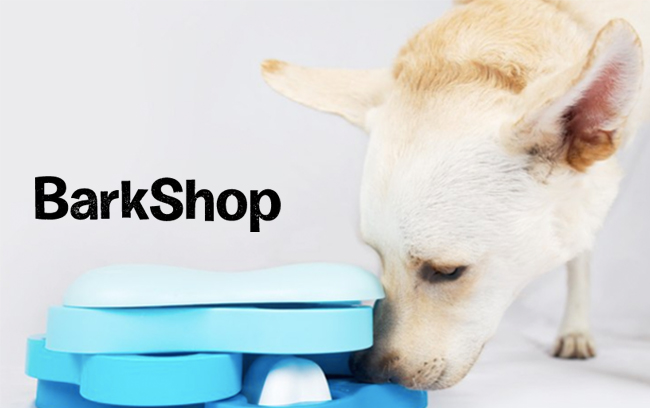For Pups With Short Attention Spans…
A dog’s teeth can chatter for a number of reasons. It could be something simple: they may be cold (give them a sweater!), excited, or reacting to certain smells. It could also be something more serious, like a neurological issue, reaction of medication, seizures, dental disease, or hormonal imbalance. It’s always good to consult with your vet if you are concerned about your dog’s teeth chattering.
Sometimes the reason behind your dog’s teeth chattering is obvious. Maybe you forgot to put their cozy sweater on before running out for a walk. Maybe they just really want that piece of stinky cheese in your hand. But other times, the reason behind all that chitter chatter isn’t so obvious.
What is Tooth Chattering in Dogs?
Dog tooth chatter basically looks identical to the chilled-to-your-bone tooth chatter that humans experience when it’s cold out. You’ll see your pup’s little chiclet teefies gnashing together rapidly1. However, unlike most human teeth chattering, you may notice excessive drooling that comes along with your dog’s teeth chattering1.
Why is Your Dog Chattering Their Teeth?
You might instinctively assume that teeth chattering simply means your dog is cold. This is definitely one possibility, but there are a surprisingly large number of other reasons your dog may be chitter-chattering away:
- Cold
- Pain
- Intense reaction to a smell or taste
- Side effect of medications
- Scared/anxious
- Excited
- Periodontal disease
- Epilepsy/seizures
- Hormonal Imbalances
- Neurological Degeneration
- Ear Infections
- White Dog Shaker Syndrome
Your Dog May Be Cold
When dogs get cold and their body temperature drops below normal, they shiver and chatter their teeth just like humans do. When your dog’s brain notices that they’re getting too cold, it sends out a signal telling muscles to start expanding and contracting very quickly. All of this shakin’ and shiverin’ from contracting muscles expends energy, which releases heat, and helps warm up your pup’s internal temperature.
If your small breed or short-haired dog shivers and chatters their teeth easily from cold weather or a chilly bath, this may just be a sign they need a cute sweater collection or cozy bath robe. Keep in mind, even a mild temperature like 68°F may feel fine to you, but to your short-haired dog it could feel freezing! They’re basically nakey, after all!
Your Dog May Be In Pain Or Distressed
If your pup is experiencing pain—even if it’s not visible to you—it may cause them to chatter or grind their teeth. This can happen if your dog is experiencing an obvious traumatic pain—like recovering from a recent surgery or broken bone. The intense pain in these situations can cause muscles to tense and tighten, which can make teeth chatter. Other times, more subtle health issues like pain from periodontal disease, arthritis, or intestinal or abdominal pain may be the culprit. Your vet can help you diagnose and decide on the right treatment plan or pain prevention to address this issue.
Your Dog May Be Having A Physical Response To A Smell
Some dogs pull back their lips and chatter their teeth as a reaction to smelling something intently. You’re most likely to see this response from intact males when they’re sniffing the nether regions of a female they’re interested in—especially when she’s in heat1. You might also see it from dogs investigating a funky fresh urine scent.
Although it may look silly, this unusual-looking reaction to smells, called the “Flehman Response”, has a purpose. As your pup is chattering away, the scent is getting directed to the vomeronasal organ in the roof of their mouth. This organ helps them process pheromones, chemical signals, and other bodily secretions from their dog pals.
Your Dog May Be Experiencing Side Effects Of Medication Or A Recent Procedure
Certain medications or even withdrawal from medications can cause teeth chattering. If your pup begins chattering their teeth after starting a new medication or stopping a medication, it’s a good idea to discuss this with your vet. They may need to adjust the dose, switch your pup to a new medication, or help your dog adjust to medication withdrawal.
Your Dog May Be Feeling Threatened, Scared, Or Anxious
Anxiety and fear can cause loads of physical symptoms, not just in humans, but in our dogs too. Some experiences like visiting a new place, meeting new people or dogs, or sitting in a scary vet office waiting to have a thermometer shoved up their bum can be anxiety inducing situations for dogs. Nervousness and anxiety is especially common in dogs with past trauma—often in shelter dogs with rough pasts—and smaller dogs who feel like they have less control over their environment. This fear and anxiety can cause full-body trembling, shaking, quivering, and teeth chattering.
It’s hard to control anxiety or fear. However, if this is a common experience for your dog, it’s affecting their quality of life, or your dog shows signs of aggression, it’s probably time to seek help from a professional trainer who specializes in helping dogs with trauma or anxiety.
Your Dog May Be Excited Or Happy
Our dogs show their excitement in a lot of different ways—wagging their tail, jumping, barking excitedly, doing zoomies around the house, or even full-body wiggles when wagging their tail just isn’t enough. Sometimes this excitement and energy escapes their body in the form of teeth chattering.
You might see this when your dog is super stoked about a piece of cheese, when they see a squirrel out the window, or when a special visitor, like grandma, is visiting. This level of excitement is usually ok. However, if this is something that happens when, say, you simply come back from checking the mail, it could be a sign that your dog is experiencing issues with separation anxiety or needs more physical/mental stimulation. For overstimulated dogs it’s important to create focus. You can do this by taking them for leashed and controlled runs, practicing commands, or solving treat puzzles.
Your Dog May Have Periodontal Disease Or Other Oral Health Issues
Teeth chattering can often be a sign that your dog is experiencing untreated pain from oral health issues like gingivitis or periodontal disease2. Inflammation and infection can wreak havoc without a proper dental routine. If your pup is chattering their teeth due to tooth pain and tense muscles, you might notice additional symptoms, or you might not. Extra symptoms may show up as stinky breath, weight loss, change in eating habits, or reluctance to chew their favorite toys or play a game of fetch2.
It’s important to address dental issues with your pup’s vet first. They’ll likely need to undergo a professional dental cleaning to treat underlying disease. Your pup will be feeling like a million bucks once their teeth are clean! Your next job is to make that clean-teeth feeling last, and prevent future teeth chattering from dental disease. This means starting a regular toothbrushing routine, and adding additional support for clean teefies with things like daily dental chews.
Your Dog May Be Suffering From Epilepsy Or Seizures
You probably already know that Epilepsy and seizures often cause obvious symptoms like full-body convulsions, and a possible loss of consciousness3. However, some types of seizures (or even the first onset of a seizure) can have less noticeable symptoms or symptoms that are localized to one specific part of the body. You may only notice milder signs like teeth chattering, excessive drooling, aggression, having accidents in the house, lethargy, change in behavior, or restlessness at night3. You might also notice a tic or twitching of just one part of the body.
If you’re noticing other symptoms such as excess drooling, confusion, aggression, or convulsions along with teeth-chattering, take your dog to the vet right away. They will run tests to determine a diagnosis and begin a treatment plan.
Your Dog May Have Hormonal Imbalances
On occasion, certain hormonal imbalances and issues with your pup’s hormonal systems can cause teeth chattering. Your vet can help you diagnose and treat teeth chattering caused by these types of health issues.
Your Dog May Have Neurological Issues Or White Dog Shaker Syndrome
Neurological issues that cause teeth chattering tend to be more common in certain small-breed dogs like Chihuahuas, Bichon Frise and Maltese. Another culprit may be an inherited disorder called “White Dog Shaker Syndrome4“. This disorder affects the nervous system and causes involuntary tremors, typically more often in white, small-breed dogs. Symptoms of White Dog Shaker Syndrome usually show up from around 6 months old to 3 years. Luckily, it’s not painful and does not interfere with consciousness, but the disorder will worsen if not treated early.
Your Dog May Have Gastrointestinal Issues
Even some conditions like gastrointestinal issues (a.k.a tummy troubles) that seem completely unrelated can cause teeth chattering and teeth grinding. This is more common in small dogs and older dogs4.
Your Dog May Have An Ear Infection
Ear infections are a less common cause of teeth chattering. It’s as if your pup is trying to snap at a bug flying by. If an ear infection is involved, you’ll usually see a lot of head shaking too.
What To Do If Your Dog’s Teeth Are Chattering
The steps you take to calm down all the chitter-chatter is going to depend on what’s causing the teeth chattering in the first place.
Talk To Your Vet – If the reason for teeth chattering isn’t obvious and harmless, it’s important to talk to your vet about symptoms you’re noticing. This is especially important if you notice additional signs like bad breath, drooling, swelling in the mouth, bleeding, change in appetite, weight loss, seizures, loss of muscle tissue, or if you have a white, small breed dog prone to teeth chattering from neurological issues.
Dental Hygiene – If your dog is chattering their teeth because of advanced dental disease, your first step is going to be to address this issue with a professional dental cleaning at your vet office. There are no at-home remedies or care that can treat severe dental disease – it needs to be handled by the pros. Your next steps will be to keep their dental health under control with a regular toothbrushing routine.
Dental Chews – After you’ve addressed more serious cases of dental disease with a professional doggie dental, consider adding daily dental chews into their routine. A once-a-day chew, in addition to toothbrushing, can help keep their dental health under control to avoid future teeth chattering.
Dog Sweaters And Onesies – Do you have a little dog or a short-haired dog who just can’t handle the cold? They may need an extra layer of warmth. It’s time to start a wardrobe collection of dog sweaters, bath robes, jackets, and cute little bath robes with rubber duckies on them. Those of us pet parents with snow dogs are jealous of your dog’s cute sweaters.
Seek Help From A Behaviorist – If you think your pup’s teeth chattering may be due to general anxiety or separation anxiety, you may want to consider working with a dog behaviorist or trainer to address the issue. Separation anxiety, especially, can be difficult to conquer on your own.
This article has been reviewed by Margo Hennet, DVM.
Margo Hennet, DVM, cVMA, and veterinarian at BARK is a canine nutrition, health, & wellness connoisseur. She has a combined 10 years of experience in clinical medicine, research, and education—that’s 70 dog years of know-how—and graduated from Colorado State University as a Doctor of Veterinary Medicine. She completed specialized training in internal medicine prior to working as a general practitioner in Colorado, has authored peer-reviewed publications and textbook chapters, holds certification in veterinary medical acupuncture, and is a member of the American Academy of Veterinary Nutrition and American Veterinary Medical Association.
Sources
1Kaufmann CA, et al. “The social behaviour of neutered male dogs compared to intact dogs (Ca- nis lupus familiaris): Video analyses, questionnaires and case studies”. Vet Med Open J. 2017; 2(1): 22-37, https://www.academia.edu/38652259/The_Social_Behaviour_of_Neutered_Male_Dogs_Compared_to_Intact_Dogs_Canis_lupus_familiaris_Video_Analyses_Questionnaires_and_Case_Studies?auto=citations&from=cover_page
2Bellows, Jan, et al. “2019 Aaha Dental Care Guidelines for Dogs and Cats*.” Allen Press, Journal of the American Animal Hospital Association, 1 Mar. 2019; 55(2): 63, https://meridian.allenpress.com/jaaha/article-abstract/55/2/49/184243/2019-AAHA-Dental-Care-Guidelines-for-Dogs-and-Cats
3“Idiopathic Epilepsy in Dogs.” The Ohio State University: Veterinary Medical Center, The Ohio State University: Veterinary Medical Center, https://vet.osu.edu/vmc/companion/our-services/neurology-and-neurosurgery/more-epilepsy.
4Son, Katelyn. “Dog Teeth Chattering: Causes, Symptoms, and Solutions.” Edited by Ivana Crnec, Veterinarians.org, 26 Sept. 2022, https://www.veterinarians.org/dog-teeth-chattering/.







